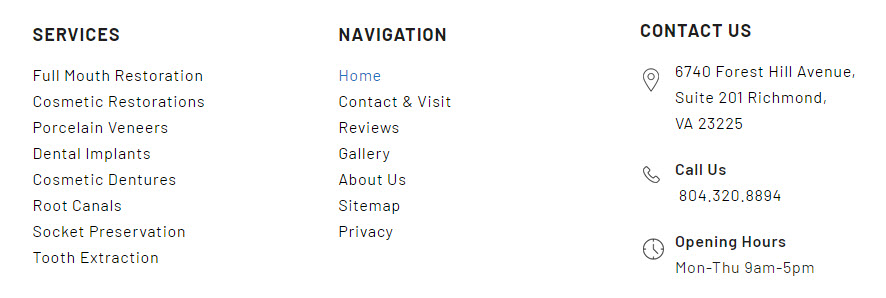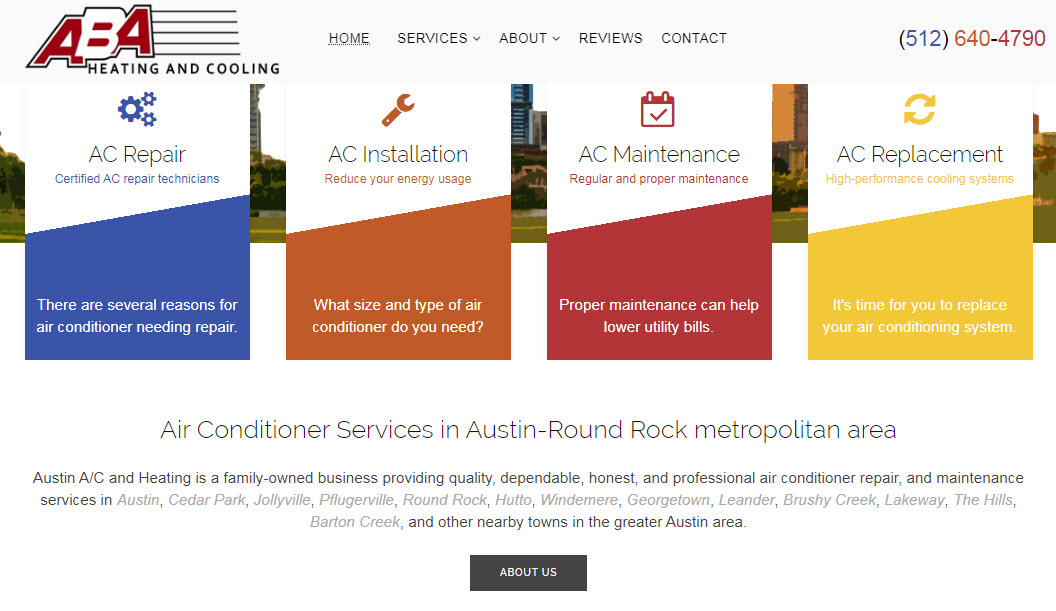SEOs often have a hard time with moderation. They tend to sit at extremes and take an all-or-nothing approach – to getting links, building citations, creating “content,” jamming keywords into pages, and so on. If they were actors, they’d be William Shatner.
You can have too much of a good thing. Most SEOs take practices that are good in small amounts and overdo them. Some of the most cautious, by-the-book SEOs I’ve known once had a black hat or a gray hat, until Google penalized their sites, or until the overplayed strategies just stopped working,
Some SEO practices get an undeserved bad rap. I think that’s mainly because some people have overused or abused those practices, and because most other people aren’t sure what’s “just right” and what’s too much, and don’t want to make a judgment call (especially with clients’ sites).
Some caution around those practices is good, but you shouldn’t be so cautious you don’t go anywhere near them. That’s why I’ll refer to them as phobias.
Below are 10 practices I’ve found to be good in moderation, or in certain cases, or both. The underlined parts denote my advice. By the way, in case it’s not obvious, I want to stress that all of this is based on my experience as a full-time, long-time local SEO dweeb – on what I’ve seen work and not work.
Phobia 1: “Having lots of internal links is spammy.”
If they’re heavy on exact-match anchor text, or aren’t relevant to what’s on the page, or you’d waste a visitor’s time if he or she clicked on them, then I agree: You don’t want those. But if you’re hyperlinking a search term you’d include on the page anyway, and the page you link to also is relevant and useful, then I say pile on the internal links. I’ve found that beneficial for rankings, at least for my clients, and especially when trying to get subpages to rank in the organic results (as opposed to the homepage / Google My Business landing page in the 3-pack results).
Phobia 2: “Even footer links to relevant pages are spammy.”
Same response as to phobia #1: how you do it is what matters. The type of footer link I recommend most often is a short-to-medium list of links to the pages on your most-important services (or products). Maybe 5-20 of them, though having more is probably fine. (If clients’ competitors and other sites are any indicators of what’s OK, then Google’s pretty forgiving even of spammy footer links.) I’d put only the name of the service, and not include the city name in the anchor text of every link.
Phobia 3: “Don’t describe the service area in the footer, because that’s spammy.”
Then that’s pretty ineffective spam, because you won’t rank in all the places you mention in your footer. You probably won’t even rank in half of them, especially if you serve a large area, and especially if you’re in an industry with a high density of local competitors (e.g. roofing).
So why do it? Well, besides the possibility that it may still help you a little even for competitive terms, I suggest you specify your service area (or a partial one) on every page for two main reasons. One is to make it clear to people (not Google) that you serve their city or area. (You can’t assume they’ll go to your “Areas Served” or “Locations” page, or will want to.) The other reason is that it does seem to help you rank for niche terms, especially in cities/towns where the density of competitors is lower. At least for niche terms, Google doesn’t need much content to grab onto to (1) understand what you offer and (2) where you offer it.
Phobia 4: “Why should I describe the service area on the homepage if I have a ‘city page’ for each place?”
Because some people may want to know what your service area is. Also because – at least in my experience – the homepage often is more likely to rank for any given search term (and for a wider variety of terms) than “city” pages and other subpages are, if the guts of the homepage make it clear what you offer and where you offer it.
Just stuffing keywords and place names onto your homepage usually isn’t enough to rank for much. (You’ll probably also need some links from solid and relevant sites, for starters.) But if you don’t even mention basic points like where you work, Google won’t necessarily play gumshoe, especially if your competitors have made their service areas clear everywhere.
Phobia 5: “Why would I link to other sites and risk bleeding off PageRank or looking spammy to Google?”
I’ve never seen that it matters either way, much or at all. Most of my greatest-hit, most-visible posts include links to relevant other resources, and that’s also true of many of my clients best-performing pages and (sometimes) blog posts. Does a page or post do well because of the outbound links? I doubt it, if only because that’s too easy, and too easy to overdo at the expense of users’ attention spans. Don’t link to another resource just because you think Google likes that, but because you think that resource is useful for your visitor. If your page is less useful because it doesn’t lead anywhere else, it’s a dead end, and is less likely to get links or anything else that Google pays attention to. That can limit its rankings eventually.
Phobia 6: “‘City’ pages are doorway pages, and doorway pages are spam, so you shouldn’t create ‘city’ pages.”
Don’t belch out pages full of boilerplate, that say nothing more than “Pay us, pay us, wherever you are.” Create pages that show people the experience you’ve got in their city or town, or that explain why you’re in a uniquely good position to help them. Even great “city” pages shouldn’t be your whole strategy for ranking in more of your service area, but they can be part of your strategy.
Phobia 7: “Play it safe and don’t let title tags go over 70 characters.”
Usually the concern is that Google will truncate a long title tag and only show a piece of it in the search results. But that concern isn’t too applicable these days, because most of the time Google rewrites your title tags. It dynamically generates what it “thinks” your title tag should be (based on the search term) and shows its preferred version in the search results. Like speed limits on the road, the title tag you specified is just a suggestion. That’s how Google handles it, anyway.
I wouldn’t let a title tag run on for 300 characters, and I’d still think hard about what to put in it. But I’ve have never seen that pages with title tags longer than 70 characters do any worse in the search results, and many of them perform just fine.
Phobia 8: “Those pages need to be under a subdirectory, like ‘/services’. It’s not OK for subpages to be at the root level.”
I’ve seen both rank just fine – on my clients’ sites and on others’ sites.
If you’re putting up a new batch of pages, or a new site, or redesigning your site, and it’s relatively easy to stick your pages under a relevantly named subdirectory, then yeah, I’d probably nest the page in a subdirectory.
But if you’ve got a page that ranks OK at a URL like yoursite.com/nameofservice, I wouldn’t change it to yoursite.com/services/nameofservice or yoursite.com/doctors/nameofdoctor just because your person says it’s a “best-practice.” That’s unlikely to bump you higher up page one, and it’s not worth needing to mess with your 301 redirects, or having to fix broken links, or both. Separate the SEO from the OCD.
Phobia 9: “We want the homepage to load faster, so it’s never OK to add something that may slow down the load-time.”
Too many SEOs have a fast fetish. They won’t add the perfect photo because of its file size, or embed a YouTube video because of its iframe, or install a useful plugin because it’s another plugin. If speed was the most important thing, Amazon’s homepage would be the fastest of all, but it’s not. Customers need stuff to look at and interact with.
Fast-loading pages should always be a consideration and a priority, but not the only consideration or only priority. Always see what you can cut, but that doesn’t mean you should cut everything or never add anything.
Phobia 10: “Don’t keep pages or posts that rank for irrelevant terms.”
Keep them around for long enough to try squeezing some benefit out of them. I’ve had success with that on occasion, but I’ve never just deleted pages and seen the remaining pages move up. As far as I know, you don’t get points for perfect tidiness.
—
What’s an SEO practice that gets a bad rap, but that has helped your local visibility?
Was there a time you flew too close to the sun? What happened?
Leave a comment!







WOW! this is a good article – lots of good info for folks if they take the time to go through it 🙂
Thanks, Andy.